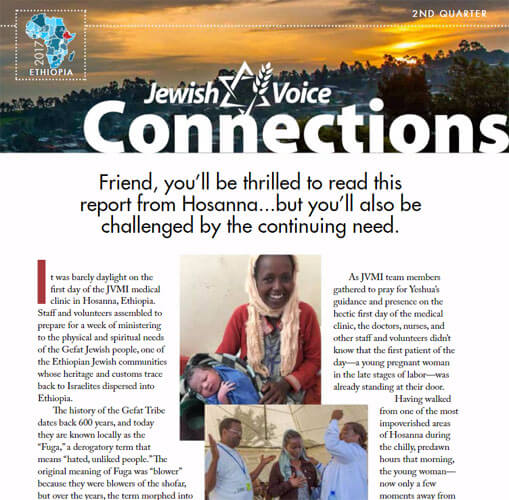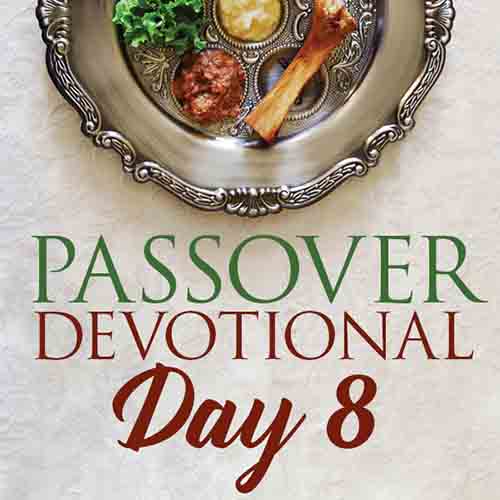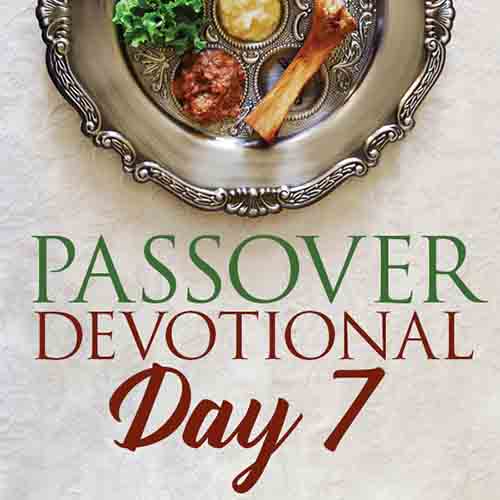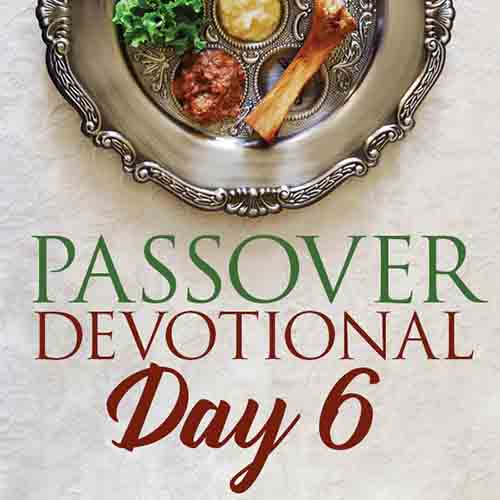Jewish Voice Connections Q2 2017


Beyond question, one of the greatest evils in human history was the Holocaust — the evil plan by Adolf Hitler and his Nazi henchmen to exterminate the Jews of Europe.
The horrors suffered by Jewish people during the Holocaust, while well known, are almost beyond comprehension. They were:
In all, an estimated 6 million Jewish people were murdered by the Nazis — 3 out of 5 Jews in Europe.
And the only crime they committed was being Jewish.
Today, 72 years after World War II, about half a million Holocaust survivors are still alive worldwide, including those who fled Nazi Germany. About 100,000 of those are men and women who actually survived the camps and ghettos, or hid from the Nazis.
Today the average age of a Jewish Holocaust survivor is 88. Many suffer from the common problems of old age: failing health, loneliness, and isolation — especially since many have no remaining family members.
But many also still suffer from the damage done by years of malnourishment, overwork, and even torture under the Nazis. In 2016, about 1 in 4 of the 180,000 Holocaust survivors living in Israel struggled to survive below the poverty line. They’re dying at the rate of 13,000 per year.
We’ve met some who are so poor, they’re forced to get by on nothing but scrounged raw vegetables and powdered soup. Others must sleep in two coats because they’re unable to pay for heat in the winter. And many find themselves unable to afford eyeglasses, dental care, or other basics.
These dear Jewish men and women suffered more than we can imagine. It’s appalling and embarrassing that they now must continue to suffer in poverty.
That’s why, with your help, Jewish Voice Ministries is doing all we can to help!
Working with partner agencies in Israel, Jewish Voice is providing Holocaust survivors with eye care, glasses, dental care, and dentures -- significant needs which, because of their high cost in Israel, often go unmet. But you can help meet these needs with your gift today:
Our special focus in Israel will continue to be Holocaust survivors.
You see, remembering the Holocaust is important. In a 2015 study by the Pew Foundation in the United States, three-quarters of Jewish people surveyed said remembering the Holocaust was “essential to their sense of Jewishness.” This ranked the idea of remembering the Holocaust as more important than any other factor to the Jewish people.
So we must remember the horror that was the Holocaust, if only to ensure that the world doesn’t repeat it. And the best way to remember is to cherish and preserve those who lived in and through those terrible times.
Won’t you help give these survivors the respect and dignity they deserve, as so many of them approach the end of their lives?
Won’t you join with Jewish Voice to bring healing and comfort to these dear people in their final years?
Your generous contribution right now will help these Jewish men and women know they have not been forgotten. You can help relieve the suffering for those who have known far too much suffering in the past.
If you can help right now, I want to send you one or more special gifts — as our way of saying thank you for your compassionate support:
And you have one more special reason to respond now to help Jewish Holocaust survivors living in Israel . . .
Just a few days from now — from sundown on April 23, through sundown on April 24 — we’ll observe Yom HaShoah, Holocaust Remembrance Day. It’s the time every year when Jewish people, and we Believers in Yeshua who care about them, stop and remember the suffering and sacrifice of so many who died at the hands of the Nazis.
Won’t you join in this Yom HaShoah remembrance by sending the most generous gift you can right now to help suffering Holocaust survivors in Israel?
We have a new look!
INTRODUCING: The new Jewish Voice Ministries website!
We’re super excited for you to see the new JVMI website! Our web designers have been hard at work for many months to create a better web experience for you, and we think you’re going to like our new look. The new Jewish Voice Ministries website has so many features to make your visit with us easier, faster, and more enjoyable.
Here are just a few things you can look forward to:
Improved Readability
Our new layout provides a more visually pleasing browsing experience, and the clean, comfortably-sized fonts make content easier to read.
Dynamic Home Page Content
Now you’ll be able to see the latest JVMI news, articles, and outreach information, right on the home page in a news feed. No need to go clicking around the whole website to stay up-to-date. Just scroll down on the home page and all the latest JVMI info is right there for you.
Redesigned Navigation
Our simplified menus get straight to the point of what you want to do when you visit our website. Do you want to Watch, Read, Learn, Pray, Go, Shop, Donate, find out more About us and Ways To Give? Our main menu bar leads you right to the content you want about our television program, publications, learning about Messianic Judaism, outreaches, ways to pray and give, products, and more. Sub-menus help you zero in further.
Reorganized Content
The new website features reorganized content that has removed former “clutter” and redundant content. Everything is sorted into simpler categories to help you locate the content you want the most. (See a quick reference guide below to help you find some of your favorite web pages.)
Powerful Search Functionality
We’ve amped up our search capabilities to produce better results for you, helping you find what you want faster and more easily.
Integrated Blog and Website
The new website is fully integrated with our blog so that your searches will produce more complete results. Now, when you search for a topic you want to know more about, you’ll get results from our web content and the blog, something that wasn’t possible with our old website.
Advanced Filtering
You’re really going to like this feature. Say, you want to watch a specific episode of our television program with Jonathan Cahn as our guest, but you don’t know when it aired. Or maybe you’d like to take a look at all shows when he was the featured guest. Now you can apply search filters to call up only those shows when he was the guest. Our old website didn’t have these advanced filtering capabilities, but with our new site, you can find just what you’re looking for in a snap.
Mobile Optimized
And of course, our new website is fully optimized to adapt to any of your mobile devices for easy reading and navigating. Watch television shows, learn more about Messianic Judaism, catch up on outreach field reports, shop, or donate to support your favorite program – all on the go wherever you are.
Visit our new website at www.jvmi.org and get acquainted with our new look. We think you’re going to love how fresh, clean, and easy it is.

Also, you are to eat it this way: with your loins girded, your shoes on your feet, and your staff in your hand. You are to eat it in haste. It is Adonai’s Passover.
―Exodus 12:11
The Israelites were to make themselves ready for God’s deliverance of them. On the night of Passover, they were to eat their meal in haste, prepared to leave at any moment the Lord called them into their freedom. When it came time to go, they didn’t have time for their bread to rise but took it with them as it was, unleavened.
What a vivid picture their readiness is for our lives as Believers today. Several times in the New Covenant God instructs us to be ready.
Ready to explain to others the reason for the hope we have in God.
Instead, sanctify Messiah as Lord in your hearts. Always be ready to give an answer to anyone who asks you a reason for the hope that is in you
―1 Peter 3:15
Ready to share the Good News that Yeshua paid the price for our sin and set us free to eternal life.
Proclaim the word! Be ready to preach the word, when it’s convenient and when it’s not.
―2 Timothy 4:2
Ready for Yeshua’s return for us.
If I go and prepare a place for you, I will come again and receive you to Myself that where I am, there you may be also.
―John 14:3
You also must be ready, for the Son of Man is coming at an hour you don’t expect.
―Luke 12:40
Lord, thank You for all that You have done for me. You have delivered me from slavery to sin, and have freed me to abundant life, the protection of Your Lordship, and to freely worship You and walk in who You designed me to be. Because of Yeshua, I can know Your freely given love. Help me to live in readiness for You – ready to be used by You, to share with others the hope and good news You have given me. May I be ever ready for Your return when You will make our freedom complete!
Learn more about Passover, here:
Yeshua, Our Passover Lamb – Passover Devotional 1
He Heard the Cry of Our Affliction – Passover Devotional 2
When I See the Blood – Passover Devotional 3
With Outstretched Arm – Passover Devotional 4
If God Had Not – Passover Devotional 5
Free Indeed – Passover Devotional 6


Then Adonai said to Moses, “Go to Pharaoh and say to him: This is what Adonai says: ‘Let My people go, so they may serve Me.
―Exodus 7:26
When God called His people out of Egypt and into freedom, it wasn’t to a freedom without purpose or parameters. He called them to be a people unto Himself. No longer would they serve Pharaoh who did not have their best interest at heart. God called them into freedom through serving, following, and worshipping Him. They were to serve God who had promised to give them a land for themselves that was good and abundant.
True freedom is that which creates an environment for us to live fully as we were designed. We have been designed to know and worship God, who is the only One deserving of our praise and devotion. The apostle Paul wrote much about our freedom in Yeshua (Jesus) Messiah, yet he called himself His bondservant. Paul seemed to have a clear understanding that serving God is freedom.
But now, having been set free from sin and having become enslaved to God, you have your fruit resulting in holiness. And the outcome is eternal life.
―Romans 6:22
Take My yoke upon you and learn from Me, for I am gentle and humble in heart, and you will find rest for your souls. For My yoke is easy and My burden is light.
―Matthew 11:29-30
Father, thank You that You know what true freedom is for me. Thank You that in serving and worshiping You, I become free. Thank You for Your love. You are a good Master, and You have put the protection of Your Lordship over me. I will gladly serve You all the days of my life. I worship You, Yeshua. You are the perfect Lamb of God who purchased my freedom through Your death and resurrection.
Get the informative Passover Seder Plate Infographic!
Learn more about Passover, here:
Yeshua, Our Passover Lamb – Passover Devotional 1
He Heard the Cry of Our Affliction – Passover Devotional 2
When I See the Blood – Passover Devotional 3
With Outstretched Arm – Passover Devotional 4
If God Had Not – Passover Devotional 5
Free Indeed – Passover Devotional 6
 The Ruach [Spirit] of Adonai Elohim is on me, because Adonai has anointed Me to proclaim Good News to the poor. He has sent me to bind up the brokenhearted, to proclaim liberty to the captives, and the opening of the prison to those who are bound, to proclaim the year of Adonai’s favor
The Ruach [Spirit] of Adonai Elohim is on me, because Adonai has anointed Me to proclaim Good News to the poor. He has sent me to bind up the brokenhearted, to proclaim liberty to the captives, and the opening of the prison to those who are bound, to proclaim the year of Adonai’s favor
―Isaiah 61:1-2a
God is in the business of setting captives free. When Moses spoke God’s message to the Hebrews in Egypt, they knew their deliverance had finally come. When Isaiah spoke the words of the Scriptures above to the Jewish people captive in Babylon, it gave them hope. They would be free!
Yeshua (Jesus) became our Passover Lamb in fulfillment of the prophetic picture of Passover. Likewise, when He began His ministry on Earth, He announced to His people the fulfillment of the words Isaiah spoke referring to Israel’s physical captivity in Babylon.
God was faithful to release Israel from their physical bondage to various nations in their ancient history, and Yeshua came to set us free from spiritual slavery to sin, a bondage leading to an eternal captivity. And while He proclaimed liberty to the captives, Yeshua also declared that this freedom would be unlike any other. Yeshua told us that the life He came to give us was abundant and that if He sets us free, we are truly free. He gave us His Spirit so that we could walk in life and freedom (John 6:63).
I have come that they might have life, and have it abundantly!
―John 10:10
Yeshua answered them, “So if the Son sets you free, you will be free indeed!
―John 8:36
Now the Lord is the Spirit, and where the Ruach Adonai (Spirit) is, there is freedom.
―2 Corinthians 3:17
Father, thank You for giving me complete freedom and abundant life through Your Son, Yeshua. Thank You for giving me Your Spirit to dwell within me to help me walk in that freedom and know the fullness of life You have given me.
Learn more about Passover, here:
Yeshua, Our Passover Lamb – Passover Devotional 1
He Heard the Cry of Our Affliction – Passover Devotional 2
When I See the Blood – Passover Devotional 3
With Outstretched Arm – Passover Devotional 4
If God Had Not – Passover Devotional 5
Free Indeed – Passover Devotional 6
On the eve of week-long Passover and Easter observances — and with obvious calculation — the Islamic State (ISIS) has intensified its terror attacks.
ISIS sent suicide bombers into two Coptic churches in Egypt on Palm Sunday, killing at least 45 worshippers. The attacks were coordinated and clearly intended to cause maximum carnage and fear for followers of Yeshua (Jesus) during this holy week.
Meanwhile, ISIS has also claimed responsibility for a rocket attack on southern Israel, launched from Sinai on Monday. One person apparently suffered shock, but no other injuries were reported.
The rocket attack came as Jews all across Israel were preparing for Passover and shortly after the Israeli government closed its side of the Taba border crossing, between the resort town of Eilat and Egypt, due to concerns over possible terrorist attacks targeting tourists.
For the last few weeks, Israeli intelligence has warned citizens and been on guard noting the possibility of increased attacks during Passover week. The Times of Israel reported on Sunday that the Israeli Counter-Terrorism Bureau encouraged Israelis not to travel to the Sinai Peninsula, where the Islamic State is in a bloody conflict with Egyptian security forces and carries out attacks against civilians.
These two attacks show the undeniable cynicism and deeply rooted evil that guide the expanding worldwide threat of radical Islamic terrorism.
Following up on last week’s Middle East Update, the Israeli government is said to be considering if and how it might bring Syrian children hurt in last week’s chemical weapons attack to Israel for treatment.
While Israel has helped thousands of Syrians wounded in the nation’s 6-year civil war, it has treated only those who can make it to the Golan Heights border. Reaching out to children wounded in the gas attack far inside the border would be difficult and mark a shift in policy.
Israel says that since 2013, it has quietly treated 3,000 Syrians who were spirited across the border by the Israeli military for medical treatment at Israeli field hospitals and medical centers.
Israeli Prime Minister Benjamin Netanyahu’s office said there has been no vote on the matter and it was only being explored.
Netanyahu was outspoken in his support of U.S. airstrikes last Thursday on the airfield where the Syrian chemical attack was allegedly launched. Before his weekly cabinet meeting on Sunday he said, “Israel fully supports the American attack on Syria.” He added that “they did this . . . to make it clear that there is a price for using chemical weapons.”
It’s difficult to watch as terrorists use Passover and Easter observances to multiply the deadly impact of their attacks. But we must stand strong for our fellow believers in Yeshua—and for those we wish to bring to salvation in His name. Prayer is a vital weapon in the war against evil.
As we approach Good Friday, then Resurrection Sunday, and the closing days of Passover, please pray for Jewish people who are in harm’s way. There’s great urgency to reach them with the Gospel.
And, as you pray, I hope you’ll consider making a gift to Jewish Voice. Your generosity, and that of other caring followers of Yeshua, make this ministry to Jewish people possible. We deeply appreciate your support of the work God has called us to.
To thank you for your gift of $40 or more today, we’ll send you a revealing — and encouraging — package of gifts. Kamal Saleem is a former terrorist who is now a follower of Yeshua. His two DVDs, “Unveiling the Ugly Truth” and “Unveiling the Beautiful Truth” address the rising threat of radical Islam and provide you significant how-tos for reaching the Muslim people with the Gospel of Yeshua. Presented along with General Jerry Boykin and Tom Doyle, these two DVDs are valuable tools during these times we’re living in.